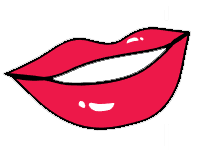Detox diets have gained popularity in recent years as a way to cleanse the body of toxins and improve overall health. But just how effective are these diets, and are they really necessary?
The idea behind detox diets is that they can help rid the body of harmful toxins that accumulate from the foods we eat, the air we breathe, and the products we use. Proponents of detox diets claim that these toxins can lead to a variety of health problems, such as fatigue, headaches, and digestive issues. They argue that by following a specific diet or program, you can help your body eliminate these toxins and improve your health.
However, many experts in the field of nutrition and health are skeptical of the claims made by proponents of detox diets. They argue that the body is already equipped with its own detoxification system, which includes the liver, kidneys, and digestive system. These organs work together to remove toxins from the body and keep it running smoothly. Additionally, there is limited scientific evidence to support the idea that detox diets are effective at removing toxins from the body.
In fact, some detox diets can be harmful to your health. Many detox diets involve severe restrictions on food intake, such as only consuming fruit juices or cabbage soup for several days. These extreme diets can lead to nutrient deficiencies, muscle loss, and a slowed metabolism. They can also be unsustainable in the long term, leading to weight gain once you return to your normal eating habits.
Detox diets can also promote unhealthy attitudes towards food and body image. By labeling certain foods as “toxic” or “unhealthy,” these diets can create a sense of guilt or shame around eating. This can lead to disordered eating habits and a negative relationship with food.
So, what can you do to support your body’s natural detoxification system without following a strict detox diet? Here are some tips to help you feel your best:
1. Eat a balanced diet: Focus on whole, nutrient-rich foods like fruits, vegetables, lean proteins, and whole grains. These foods provide your body with the nutrients it needs to support its detoxification processes.
2. Stay hydrated: Drinking plenty of water helps flush toxins from the body and keeps you hydrated.
3. Practice moderation: It’s okay to indulge in treats now and then. The key is to enjoy these foods in moderation and balance them with nutrient-rich options.
4. Get moving: Regular exercise can help support your body’s detoxification system by improving circulation and aiding in the elimination of toxins through sweat.
5. Prioritize sleep: Getting enough sleep is essential for your body to repair and rejuvenate itself. Aim for 7-9 hours of quality sleep each night.
Remember, you don’t need to follow a strict detox diet to support your body’s natural detoxification system. By focusing on a balanced diet, staying hydrated, exercising regularly, and getting enough sleep, you can help your body eliminate toxins and feel your best.
In conclusion, while detox diets may sound appealing, they are often unnecessary and can be harmful to your health. Instead of following a strict detox diet, focus on making small, sustainable changes to support your body’s natural detoxification system. By eating a balanced diet, staying hydrated, exercising regularly, and getting enough sleep, you can help your body eliminate toxins and improve your overall health.



